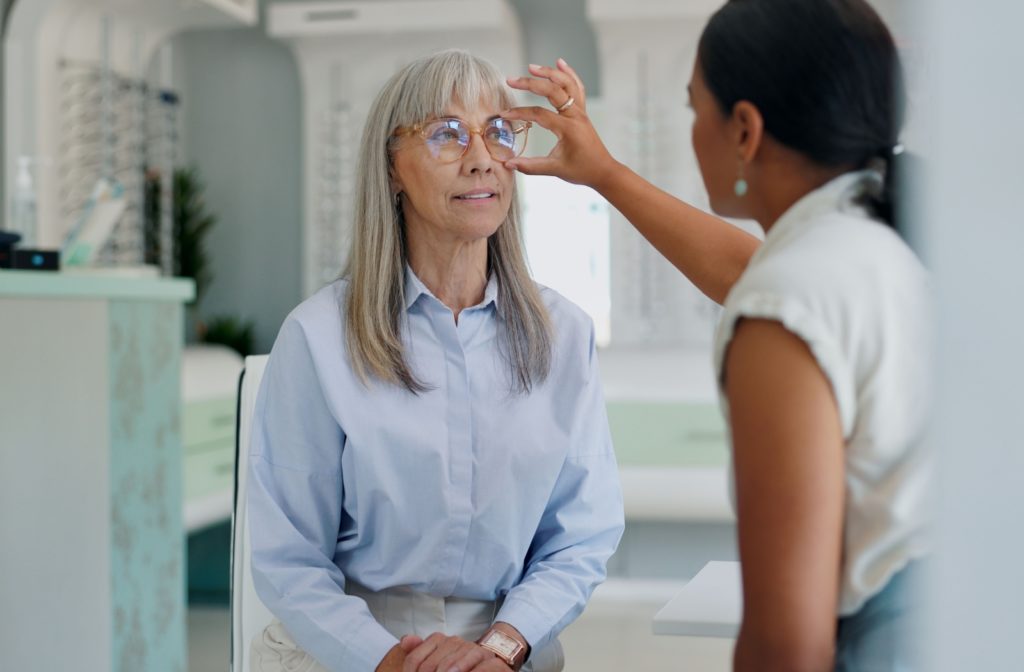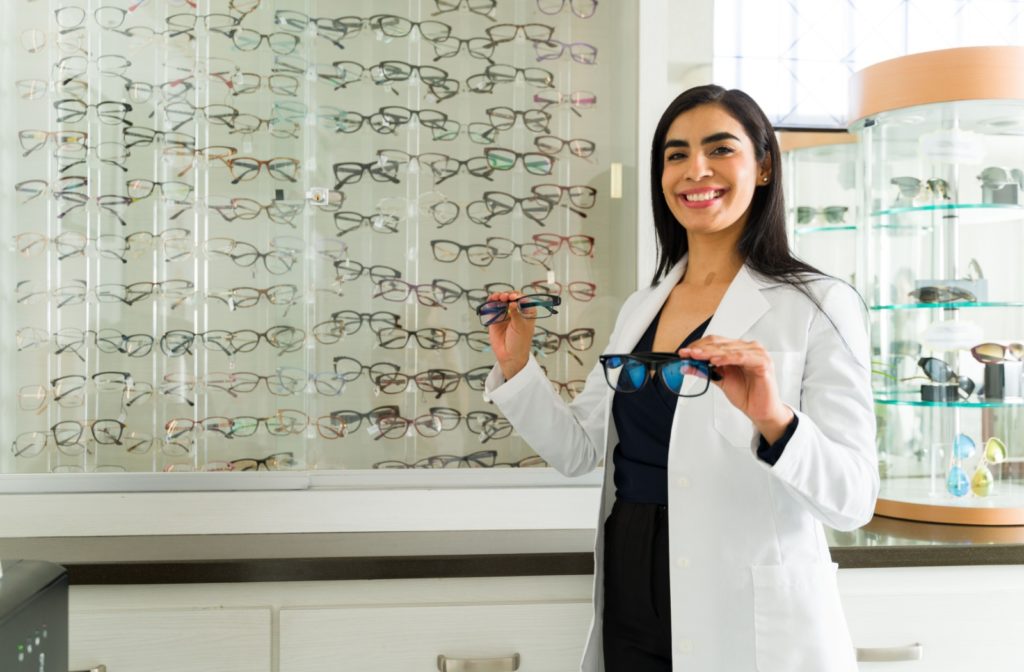When it comes to maintaining healthy vision, most people think about seeing an optometrist for eye exams or visiting an ophthalmologist for more specialized care. However, there’s another critical professional in the world of eyecare who plays an essential role in your journey to clear vision: the optician.
If you’ve ever purchased eyeglasses or contact lenses, chances are you’ve interacted with an optician. An optician is a trained professional responsible for interpreting prescriptions written by optometrists and ophthalmologists, fitting and adjusting eyewear, and confirming your glasses or contact lenses meet your specific needs.
To learn more about maintaining your vision, explore our frames and lenses section or read about the importance of regular eye exams.
What Exactly Does an Optician Do?
Here’s a detailed look at the core responsibilities of an optician:
- Interpreting prescriptions: Opticians analyze prescriptions from eye doctors to determine the exact specifications for eyeglasses or contact lenses. While opticians don’t diagnose or write prescriptions, they are instrumental in helping you see clearly by turning those prescriptions into functional eyewear.
- Frame selection and styling: Finding the perfect pair of glasses isn’t just about vision—it’s also about style and fit. Opticians help patients choose frames that complement their face shape, lifestyle, and personal preferences.
- Lens customization: From single-vision to progressive lenses, opticians guide you through the various lens options available. They consider your prescription, lifestyle, and preferences to recommend lenses with coatings or features like blue-light filtering, anti-glare, or photochromic technology.
- Measuring and fitting: Precise measurements are critical for eyewear to function correctly. Opticians measure the distance between your pupils (PD) and make sure lenses are aligned properly in your frames. They also adjust the fit of the frames to sit comfortably and securely on your face.
- Eyewear repairs and adjustments: Whether you’ve bent your frames or need a loose screw tightened, opticians are skilled at performing minor repairs and adjustments to keep your eyewear functional and comfortable.
- Educating patients: Opticians take the time to educate you about proper eyewear care, lens options, and any questions you may have about your glasses or contacts. They make sure you leave feeling confident about your purchase and how to maintain it.
- Managing contact lenses: For contact lens wearers, opticians assist with selecting the right type of lenses, confirming proper fit, and providing guidance on inserting, removing, and caring for lenses.
- Keeping up with trends and technology: Opticians stay up-to-date with the latest advancements in eyewear technology and fashion trends, offering patients the best and most stylish options available.

How Does an Optician Fit into Your Eye Care Routine?
While opticians are not medical doctors, they play a vital role in your overall eye care journey. After you visit an optometrist or ophthalmologist for an eye exam, the next step often involves working with an optician to select and customize your eyewear.
For example, after your eye doctor provides a prescription for glasses, your optician will:
- Help you understand your prescription and how it translates into your lenses.
- Guide you through frame and lens options that match your needs and preferences.
- Take precise measurements to confirm your glasses provide optimal clarity and comfort.
Additionally, opticians often serve as a resource for ongoing eyewear maintenance, including repairs, adjustments, and advice on upgrading your lenses or frames over time.
The Training & Expertise of an Optician
Opticians are highly skilled professionals who undergo specialized training to excel in their field. In many states, opticians must complete a certification program or an associate’s degree in opticianry, which includes coursework in anatomy, optics, and customer service. Some states also require licensure, which involves passing practical and written exams.
Through their training, opticians develop a deep understanding of lens technology, frame design, and the technical aspects of eyewear fitting. Their expertise allows them to deliver tailored solutions that meet each patient’s unique needs.
Why You Need an Optician
If you’ve ever felt overwhelmed by the number of options available when shopping for glasses or contact lenses, an optician is your greatest ally. They simplify the process, providing personalized recommendations and making sure you walk away with eyewear that enhances your vision and suits your lifestyle.
Their role goes beyond simply selling eyewear. Opticians are patient-focused professionals who prioritize your satisfaction and comfort. They take the time to listen to your concerns, answer your questions, and confirm your eyewear supports your vision health.
A Trusted Partner in Your Vision Journey
Visiting your optician isn’t just about picking out glasses—it’s about building a relationship with someone who understands your unique visual needs. Whether you’re selecting your first pair of glasses, upgrading your lenses, or learning how to care for contact lenses, your optician is there to guide you every step of the way.
By working hand-in-hand with optometrists and ophthalmologists, opticians make sure that you receive the comprehensive care and support you deserve. Their expertise and dedication make them an indispensable part of your neighborhood eye care team.
Whether you’re updating your prescription, exploring new styles, or seeking advice on lens technology, an optician is your go-to resource for all things eyewear. If you haven’t visited your local optician recently, consider scheduling a time to explore the latest frames, lenses, and innovations that can make a difference in your everyday vision.
For more tips on maintaining eye health, learn about how regular eye exams benefit your overall health and schedule a visit with Total Vision Rancho Bernardo today.



